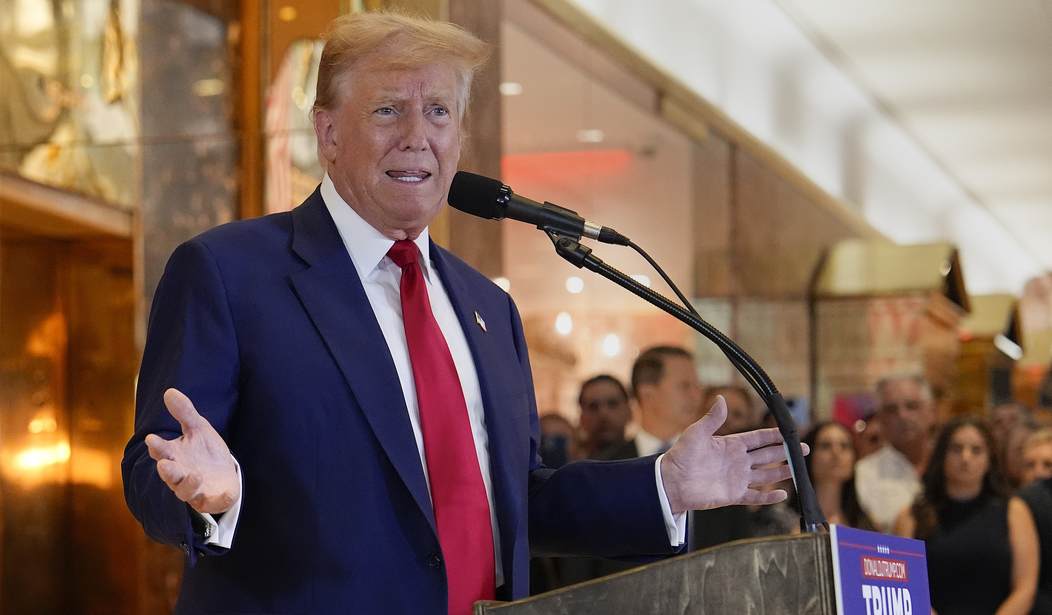Liberals have been drooling over the opportunity to describe Donald Trump as a "convicted felon" ever since his kangaroo court conviction in Manhattan. Unfortunately, that description is technically accurate and it comes with more repercussions than political baggage. It is illegal for persons convicted of a felony to own a firearm in the United States. Eight states allow convicts to restore their right to possess a gun after a waiting period, but New York is not among them. With that in mind, the NYPD is moving to revoke Donald Trump's gun permit. Of course, if his conviction is overturned on appeal (as is expected) his rights can be restored. Still, this seems like an unnecessarily public display of contempt for the former president that didn't need to be rushed into effect while the appeal process plays out. (ABC News)
The NYPD will be revoking former President Donald Trump's gun permit following his conviction on 34 felony counts last week in Manhattan, sources told ABC News.
Possession of a firearm by a convicted felon is a federal crime.
The former president's gun permit was initially suspended after he was criminally indicted last year by the Manhattan District Attorney's office.
On May 30, a jury convicted him of 34 counts of falsifying business records in the criminal case related to an alleged hush money payment made to adult film star Stormy Daniels. Trump has contended he did nothing illegal and said he will appeal the decision.
As noted in the excerpt above, Trump's gun permit was already suspended last year after his initial indictment in the "hush money" case brought by corrupt District Attorney Alvin Bragg. Now the NYPD will be making it official. This won't represent much of a threat to Trump's safety since he is constantly accompanied by armed Secret Service agents, unlike the vast majority of New York City denizens.
The same situation applies in Trump's new home state of Florida. If his conviction were to somehow not be overturned and he wished to have his rights restored, he could consider moving to Texas, where he would be eligible to apply for a new permit five years after he completes whatever sentence he is given. Other states, including Kansas and Louisiana, offer similar opportunities, though the waiting period can range from five to fifteen years. Trump is already in his late seventies, so the question may be mostly academic at this point. And, as already noted, he will have Secret Service protection for the rest of his life.
Still, Trump's case offers us the opportunity to take a fresh look at the laws that impose such restrictions. It obviously makes sense to negate the Second Amendment rights of persons convicted of gun crimes or other violent offenses because they have demonstrated that they can not be trusted to safely wield firearms. But can we honestly say the same about someone who was convicted of what essentially amounts to a bookkeeping error? Many other people have been hit with felony convictions for tax evasion, but you would probably be hard-pressed to find any who threatened their accountants with a firearm.
There is a fair case to be made that we should limit these restrictions to those convicted of violent crimes, respecting the Second Amendment rights of citizens to the fullest extent possible. Of course, we would then need to come up with a precise definition of which specific crimes are classified as "violent." Would voter fraud be considered a violent crime? How about identity theft? The counter-argument to this proposal is the idea that anyone willing to commit one type of crime might be predisposed to break other laws, but that smacks of preemptive prosecution, which would be problematic. I really don't have a compelling take on how this would best be handled or even if the laws need to be changed at all, but it's certainly worth considering.








Join the conversation as a VIP Member